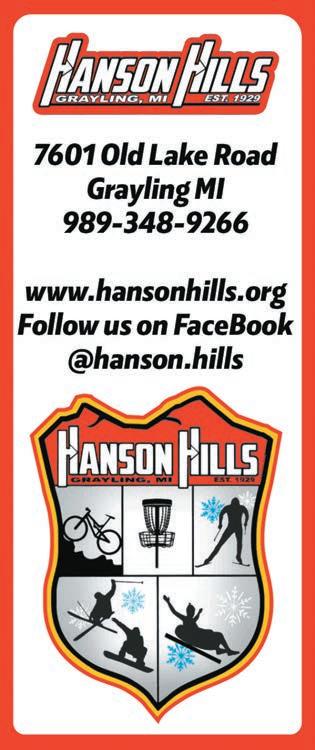
2 minute read
Amateur Radio Plays Vital Roles in the AuSable River Canoe Marathon (ARCM)


Advertisement
By Ken White
“Race Headquarters, this is Stephan Bridge, call sign W8SYU, with a report for five canoes, over”. “Stephan Bridge, this is Race Headquarters, ready to copy, over.” “This is Stephan Bridge. Place 16. Canoe 67: time 9 hours, 51 minutes, 58 seconds. Place 17. Canoe 73: time 9 hours, 52 minutes...” This example represents hundreds of such communications by volunteer amateur radio operators essential to the conduct of the Marathon. Working side-by-side with the race officials at each of the 15 timing sites along the river, the licensed amateur radio operators—called “hams”—key their radio microphones transmitting the official time that each canoe passed their site. Fellow hams manning race headquarters capture those reports and upload the data to the ARCM website for reference worldwide. The “2-meter band” amateur frequencies crackle all through the summer night and into the morning and afternoon right through the finish. Any ham in the area, or anyone with a radio that can receive the amateur bands, can keep up with the race by tuning into the frequencies being used. Many ham operators volunteer to support two timing sites, leaving their first—once all reports have been filed—to drive downstream well ahead of the lead canoes to meet with their second site’s officials and get set-up again. Hams also report and update the status of canoes that withdraw from the race or miss the cut-off times as well as furnish a means for the race officials to communicate when needed. Maintaining 100% accountability of the racers is paramount to providing a safe and professional event. If necessary, hams will also provide communications to assist in getting urgent or emergency aid to race participants or spectators that may need it. Amateur radio operators also support the Time Trials, a furious half-mile sprint by each individual team upstream and then back down which determines their Le Mans-style starting position for the Marathon. Those with the five fastest sprint times will be in the front row, the next five fastest in the next row, and so on. Time Trials are held in Grayling Wednesday, Thursday, and Friday afternoons in the week before the Marathon. Time Trial slots, only four minutes in duration, are chosen on a first-come-first-serve basis by the contestants when they register for the Marathon. Four hams, usually with hand-held radios, are collocated with the course officials. The first ham is with the Start/Finish Line Timing officials and transmits to the other hams the time when a canoe is under- finish, radios that a canoe is about to cross the line. Alerted, the Start/Finish Timing officials then capture the canoe’s finish time and post it on the Marathon website. Sent over the air by the first ham to all the others, the finish time is shouted out by both the Start/Finish Line and Upstream Announcers to the spectators cheering on the competitors. The hectic goings-on of the Time Trials make for an exciting event for the racing teams, the spectators, the officials and the hams alike!
Above: At Camp 10, Lynn monitors nets for Ken (K0WJR)
Left: Harold (W8SYU) Works on the Time Trials Net

Continued on page 22













